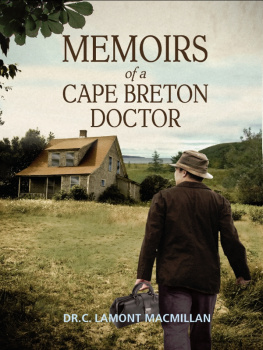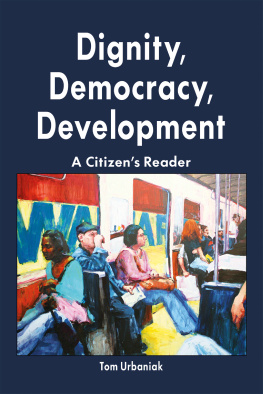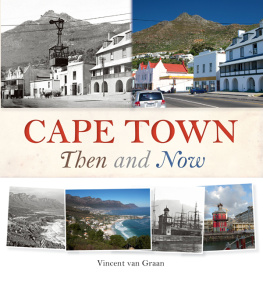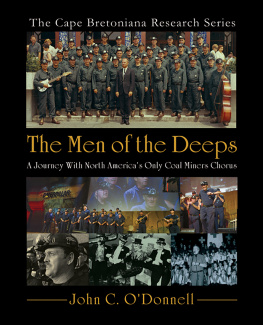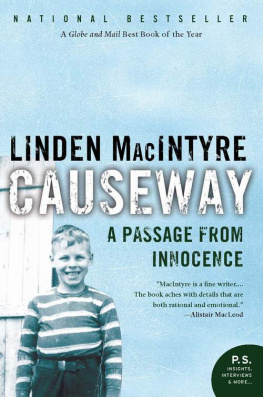I talian L ives
I talian L ives
Cape Breton Memories
Sam Migliore and A. Evo DiPierro
E ditors
1999, 2017 Sam Migliore, A. Evo DiPierro
All rights reserved. No part of this work may be reproduced or used in any form or by any means, electronic or mechanical, including photocopying, recording or any information storage or retrieval system, without the prior written permission of the publisher. Cape Breton University Press recognizes fair dealing uses under the Copyright Act (Canada). Responsibility for the research and permissions obtained for this publication rests with the authors.
CBUP recognizes the support of the Province of Nova Scotia, through Film and Creative Industries Nova Scotia, and the support received for its publishing program from the Canada Council for the Arts Block Grants Program. We are pleased to work in partnership with these bodies to develop and promote our cultural resources.
Original cover design by Goose Lane Editions
Book design by Gail Jones, Sydney, NS
eBook: tikaebooks.com
Library and Archives Canada Cataloguing in Publication
Italian lives, Cape Breton memories / Sam Migliore and A. Evo DiPierro, editors. -- New edition.
Includes bibliographical references.
Issued in print and electronic formats.
ISBN 978-1-77206-070-6 (softcover).--ISBN 978-1-77206-071-3 (PDF).--
ISBN 978-1-77206-072-0 (EPUB).--ISBN 978-1-77206-073-7 (Kindle)
1. Italians--Nova Scotia--Cape Breton Island--History. 2. Italian Canadians--Nova Scotia--Cape Breton Island--History. I. Migliore, Sam, editor II. DiPierro, A. Evo, 1966-, editor
FC2343.8.I8I83 2017 971.6900451 C2017-900913-3
C2017-900914-1
Cape Breton University Press
Box 5300
Sydney, Nova Scotia
CANADA B1P 6L2
Quando un popolo, un paese, una collettivit grande o piccola che sia, non disposta a perdere la memoria, vuol dire che non disposta nemmeno a perdere la libert.
Leonardo Sciascia
When a people, a nation, a social community (whether large or small) is unwilling to lose its collective memory, it means that it is unwilling to lose its liberty.
Preface
By Sam Migliore (2017)
When Evo DiPierro and I first published Italian Live s back in 1999, we had high hopes that the book would be successful, in both representing the richness and diversity of the Italian experience in Cape Breton, and providing members of the various Italian communities of the island with a document they would be proud to share with their children. We hope that the demand for the re-release of the book indicates we have succeeded. One thing is for certain. The book would not have been possible, let alone successful, without the support and assistance of the many people from Dominion, Glace Bay, Sydney and elsewhere who contributed articles, recipes, life histories and the various stories that appear in the book. We thank you all; without you this book would not have been possible.
A great deal has changed since 1999. Evo is now a Roman Catholic Priest with the Diocese of Antigonish, Nova Scotia. And, in 2000, to be closer to family, I moved to British Columbia where I have a position with the Department of Anthropology at Kwantlen Polytechnic University. Although Evo has been in a better position to maintain his links with Cape Breton, I still feel a closeness to the island and its people. We made many good friends, particularly in the Italian communities, and we continue to cherish those friendships.
My wife, Margaret Dorazio-Migliore, and I first arrived in Cape Breton in the late summer of 1990. As we drove towards Sydney, we missed the turn and ended up at the North Sydney ferry terminal (almost bound for Newfoundland). The man in the vehicle in front of us kindly guided us all the way back to our location in Sydney. It was our first experience with Cape Breton hospitality. We were fortunate to experience this type of hospitality on many occasions during our stay on the island. Connie and John deRoche made us feel welcome at UCCB (now Cape Breton University), and Lino Polegato was instrumental in helping us make contact with other Italians in the area. His tragic death a few years later was the saddest moment many of us experienced at the time. He remains my inspiration for this book. Although Lino and I started to develop ideas for research among Italians in Cape Breton, the actual idea to prepare an entire book on the Italian experience came from Rose DeLorenzo of Sydney. The final version of Italian Lives was probably not what she originally envisioned, but she has always been kind with her comments about the book. My prize memento from this period is the small plaque the Italian Cultural Association presented to me in 2000, just as I was preparing to leave the island, as their token of appreciation for my contributions to the publication.
I may no longer live in Cape Breton, but my mind still wanders there at times to share a daydream glass of wine with the many friends I hope to see again in the near future. I am proud to call you all my friends. At the same time, Evo and I want to acknowledge that a number of the people we worked with, and who contributed to the book in various ways, are sadly no longer with usincluding Evos own parents, Vito and Gina (DiRito) DiPierro. Evo and I have deliberately chosen to not update certain chapters or sections of the book so these dear friends (family members) can live on through the book, and our memories of past celebrations together. We do, however, send our sincere condolences to their families and friends.
Table Contents
Acknowledgments
Evo DiPierro thanks the following individuals for their assistance and/or support during this project: Meaghan Beaton, Sister Peggy Butts, Bonnie Campbell (Library of Parliament), Victor and Olive Dawson, Heather Hayes, the late Anne Marie MacEachern, Russell MacLellan, Sandy McNabb, Dolores Moore, Ron Pearson, the late Frank Rudderham, Susan Sims, Peggy MacAdam, Wes Stewart ( Cape Breton Post ), and Angelo Zorzi.
Sam Migliore acknowledges the assistance of the late Lino Polegato for his support in getting the project started in the early 1990s. He also thanks the following people for their various contributions, suggestions, and encouragements throughout the production of this book: Frank DiVito, Margaret Dorazio-Migliore, Anne MacDougall (University College of Cape Breton [now Cape Breton University, CBU]), Elaine and Bill Merrell, the late Robert Morgan (Beaton Institute, CBU), Carol Ann Shephard (CBU), the members of the Department of Social Science and Practice (both past and current) at Cape Breton University, and Kwantlen Polytechnic University for the time necessary to review and make the necessary changes to this new edition.
Together, we express our appreciation for the help we received from: various research and tran-scription assistants; all those who contributed photos and articles for the book; John Campbell ( Cape Breton Post ), Kate Currie (Beaton Institute, CBU), Theresa Della Vella, Rose DeLorenzo, Fred Jackson ( Cape Breton Post ), Livio Nicoletti, Penelope Marshall, Gail Jones and staff at the University College of Cape Breton Press ( now Cape Breton University Press), Laura Syms (CBU Library), and all the members of the Italian communities of Cape Breton. The research project was made possible, in part, from REC funding, University College of Cape Breton (CBU), and a 1993 Helen Creighton Foundation, Grant-in-Aid. Finally, we express our thanks to Mike Hunter and the current staff at the Cape Breton University Press for their dedicated work with this new edition.





